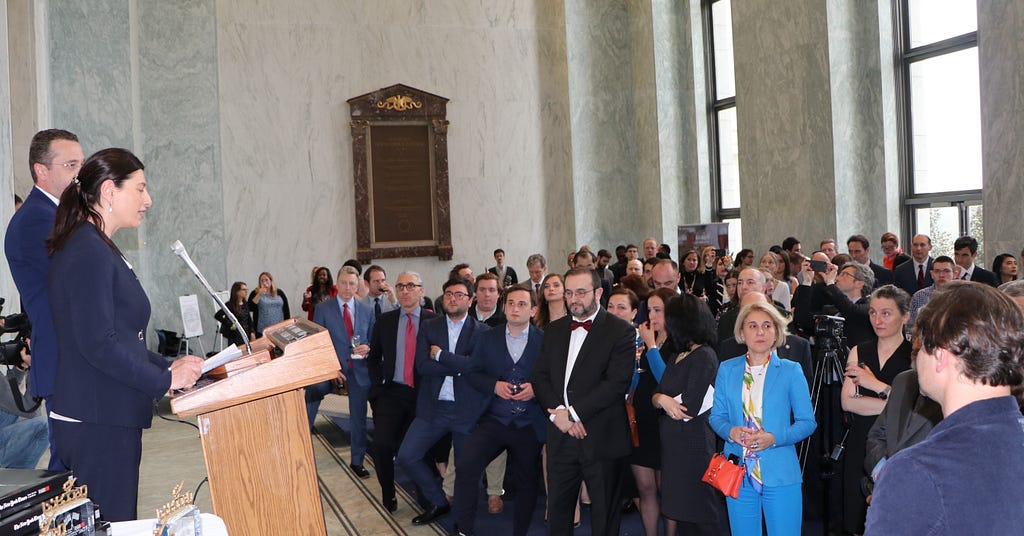

“State authority belongs to the nation, the Parliament exercises the authority of the nation” — an extract from the Constitution of the Georgian Constituent Assembly (1919–1921)
The history of the Georgian Constituent Assembly (modern day Parliament) goes back 100 years, when it first convened on March 12, 1919.
From 1918–1921, the first Democratic Republic of Georgia was legitimately considered to be one of the most democratic states in Europe. In 1918, the Georgian coalition government and parliament, consisting of multiple parties, began building the democratic institutions which developed election law, guaranteeing the right to vote to every citizen of Georgia over the age of 20, regardless of social, gender, ethnic, religious or political affiliation.


In February 1919, Georgia held its first universal, democratic and multi-party election for the Constituent Assembly. Among 130 elected members of the Assembly, 23 of them represented ethnic minority groups.
Remarkably, Georgia allowed women’s participation in its very first election and elected five women to Parliament. This happened before women in the majority of western countries, including the U.S. (1920) and the U.K. (1928) even allowed women to vote, much less be elected.
The Constituent Assembly (1919–1921) of the first Democratic Republic of Georgia became a visible success story of Georgian parliament history. The Assembly managed several significant legislative achievements, including the inception of constitutional, judicial and educational reforms, ensuring the balance of power between central and local governments, the separation of powers between the three branches of the government, adopting European education programs, and opening 1,200 new schools.


Despite Tbilisi’s besiegement by the Soviet Army, the Constituent Assembly adopted the Constitution of Georgia during one of its last sessions in February, 1921,. The Constitution contained all the progressive democratic norms, including economic, political, and social rights of citizens, including gender equality, ethnic minority rights, etc.
Most of the parliamentarians were not only engaged in legislative activities, but also defended the independence of Georgia against Soviets with arms, fighting on the frontlines and commanding military units.
After the Soviet takeover of the country, some of the Assembly members emigrated and continued to fight for independence from abroad. Most of the remaining in-country parliamentarians faced severe repercussions with 51 of them being executed, including two female members of the Assembly.


Georgia’s first Constituent Assembly is part of our national heritage and a pillar of Georgian democracy.
On the occasion of our Centennial Anniversary, the Georgian Embassy held a reception at the U.S. Congress dedicated to the Centennial Anniversary of the Georgian Parliament. Ambassador David Bakradze and Chairwomen of the International Relations Committee of the Parliament of Georgia Sophie Katsarava noted that Georgia’s first Constituent Assembly is a unique period during the development of Georgia’s modern democracy and is considered to be part of our national heritage and a pillar of Georgia’s current democratic statehood.
Congressman David E Price (NC-4th District), House Democracy Partnership/HDP Chairman congratulated Georgian people on the Centennial of the Georgian Parliament
